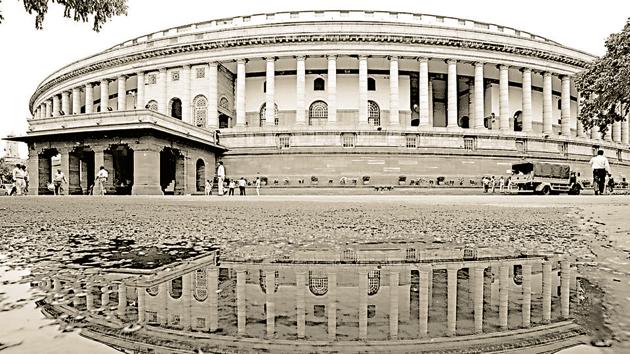Parliamentary committees matter | Opinion
They can serve as the intellectual compass for governance. MPs must take them more seriously
The chairman of the Rajya Sabha (RS), Vice President M Venkaiah Naidu, has been concerned about the functioning of parliamentary committees. Last week, he shared information about the attendance of Members of Parliament (MPs) in eight parliamentary committees. These committees, dealing with subjects such as commerce, home, law and justice, human resource development, science and technology, are under the administrative control of the Rajya Sabha. Eighty MPs from the Upper House are part of these committees.

According to data shared by the chairman, only 18 out of the 80 RS MPs attended all the meetings of their committees. This number looks dismal when you consider that eight out of the 18 are chairmen of these committees. The attendance of Lok Sabha (LS) MPs in these committees was equally poor. Out of the 168 LS MPs on these committees, only 18 attended all the meetings. The chairman also stressed that the absence of MPs has a larger impact, as each member of a committee represents 25 of his parliamentary colleagues in these meetings. The issue of MPs attending parliamentary meetings is critically important because of the central role committees play in our parliamentary system.
The governance of the country has increasingly become specialised and complex. However, MPs elected to Parliament are generalists. They are often called upon to legislate on subject areas for which they may not have academic grounding, formal training or depth. In the absence of dedicated research staff, they are neither effective in their role as lawmakers nor in questioning the functioning of the government. And while Parliament is the highest law-making institution, it is also a forum for politics. A speech on the floor of the House is more about communicating to the electorate than getting into the complex details required for running a country. These challenges, coupled with a limited number of sitting days, makes the floor of Parliament an ineffective place for finding governance solutions for the country.
It’s a challenge that was recognised by many legislatures long ago. Woodrow Wilson, before he became the 28th president of the United States, wrote in 1885: “...it is not far from the truth to say that Congress in session is Congress on public exhibition, whilst Congress in its committee rooms is Congress at work.” This was a fact that was recognised and institutionalised in our parliamentary system in the early 90s. Parliamentary committees do not suffer from any of the infirmities of the debate that happens on the floor of Parliament. Meetings of the committees are independent of Parliament’s calendar of sitting days. They are held behind closed doors, so that MPs can focus on the issue at hand, rather than worry about political positioning.
Since time on the floor of the house is allocated on the basis of party strength, many MPs only get a couple of minutes to make their point. This is not the case with committee meetings, where MPs can contribute extensively to the discussions of the committee. With these advantages, one would assume that MPs would be diligent in attending and participating in committee meetings. However, that’s not the case. Between 2009 and 2014, only half the MPs attended the meetings of the 16 committees administered by the LS. The situation in the last five years of the LS has not been very different either.
The lackadaisical attitude of our MPs is perhaps linked to the impression created and importance given to parliamentary committees. Repeated requests to either send or not send or send bills to a joint committee, instead of an already established specialised committee, creates an impression that the committee process is political and not focused on technical scrutiny. Not referring a bill to a committee sends the message that the bills piloted by the government are perfect, and they are so urgently needed that they do not require the contribution of a committee of MPs. But these impressions can be corrected. The two presiding officers could discourage requests from ministers for not referring their bills to committees. Or the rules of procedure of Parliament could be amended to automatically send all substantive legislation for timely scrutiny by a committee.
MPs have a one-year tenure on parliamentary committees. This short tenure could be suggestive of the non-serious nature of committees. Venkaiah Naidu had recently suggested that MPs should have longer tenure in committees so that they could build up their expertise in subject areas. Very often, MPs experience a knowledge gap when dealing with specialised subjects. In 2005, speaker Somnath Chatterjee was inclined towards associating external experts with parliamentary committees to support the committees in analysing legislations and policies. However, the idea did not resonate with political leaders, and was shelved. But the need for expert support for MPs has been recognised by the RS chairman on multiple occasions. Naidu has suggested that there is a need to reflect on the infrastructure support that MPs require for contributing effectively to parliamentary functioning.
Parliamentary committees are the brain of Parliament. They give the institution the ability to identify pressing and prospective issues, suggest solutions, and highlight gaps in implementation. Supporting and encouraging MPs to engage in Parliamentary committees will ensure that the Parliament becomes the intellectual compass for good governance in the country.
Chakshu Roy is the head of Legislative and Civic Engagement, PRS Legislative Research
The views expressed are personal



